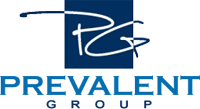As a job seeker, wouldn’t it be great if you could read your interviewers’ minds? Well, you can’t become a psychic, but you can get a glimpse into the things that hiring managers wish candidates knew about the interviewing process. Here are a few secrets to help give you an edge in your next interview:
They Already Know Quite a Bit About You
Before you even received a call for an interview, the hiring team Googled you. They looked at your LinkedIn page, your other social media profiles, they read your blog, and they conducted various other forms of recon on you. This means you need to always be mindful of your online presence. Even if you think you do a good job of keeping your personal profiles private, it never hurts to Google yourself from time to time so that you can see what potential employers will find when they search for you.
Appearances Do Matter
Nobody likes to admit that they judge books by their covers, but in truth, everyone does. Hiring managers will make assumptions about you based upon the way you dress and carry yourself in an interview. This means that you should always dress professionally and conservatively. For men, a suit and tie is always in order. For women, necklines and hemlines should always be modest. Choose neutral colors, limit jewelry, and go easy on the cologne or perfume. Walk with confidence, use a firm handshake, and make strong eye contact.
Everybody is a Perfectionist and a Team Player
Almost every candidate that sits in the interview chair regurgitates the same canned, practiced and rehashed interview answers over and over again. If hiring managers had quarters for every “team player” and “perfectionist” who walked through their doors, they could all retire. An interviewer genuinely wants to learn about you, so relax and be yourself, and try not to spit back robotic, memorized answers. Be genuine and let your true colors shine through.
The Most Qualified Candidate Doesn’t Always Get the Job
The most qualified candidate is not necessarily the best choice for every job. Hiring managers must consider how well a candidate’s personality will mesh with the team, they must consider a candidate’s values and ethics, and they must also consider soft skills. If a candidate is extremely likeable and passionate about the job, they may actually have a better chance than the most qualified, yet unenthusiastic, candidate. In an interview, you never want to assume that your resume will speak for you. If you want a job, don’t be afraid to show your enthusiasm to the interviewer. And if you aren’t the most qualified candidate, you can increase your stock by demonstrating passion and an eagerness to learn.
An excellent way to brush up on your interviewing skills is to work with a professional recruiting firm. Recruiters know their client companies inside and out, and they can help adequately prepare you for each step of the process. If you are looking to work with an effective recruiter, contact
The Prevalent Group today. We are a nationally recognized
management and executive placement and recruitment agency that works with experienced managers and executives in sales, marketing, engineering, technology and more. We can help you locate job opportunities that align with your long-term personal and professional goals.
